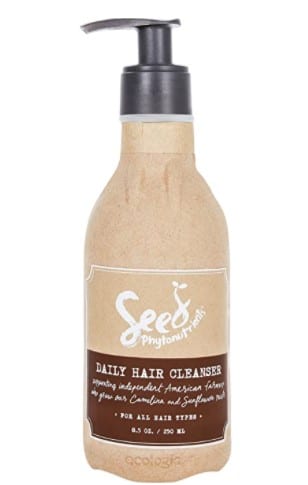Did you know our skin absorbs up to 60% of what we apply on it?
With the endless choices presented to us today, it’s essential to be mindful of the ingredients in our personal care products.
Natural cosmetics are the solution for a healthy body and planet, and here’s why.
Table of Contents
3 Reasons To Choose Natural Cosmetics
There are several (very convincing reasons) why everyone should start using natural cosmetics for their personal care. Let’s dive in and take a look at the Top 3!
1. Natural Cosmetics Protect Your Health

But first things first: What is the difference between chemical and natural cosmetics?
Chemical cosmetics contain (often harmful) synthetic ingredients that serve different purposes within the product.
Some toxic ingredients are inadvertently added during the manufacturing process, while product makers put others in purposefully to help with absorption, shine, shimmer, or a non-greasy feel.
In natural cosmetics, ingredients should be naturally extracted i.e., from plants, flowers, or any other mineral source. A few common examples are essential oils, shea butter and aloe vera. They provide vitamins and nutrients that our skin can safely absorb.
Natural cosmetics don’t contain Genetically Modified Organisms (GMOs) or petrochemical constituents and are never tested on animals.
Plus, they usually adapt to every skin type, no matter how sensitive it is.
The problem: The cosmetic industry is one of the least regulated markets in the world. Most commercial beauty products contain dozens of harmful chemicals, many of which have not even been tested for safety in humans. Often, they are by-products of oil and coal.
This is where greenwashing comes into play – brands can call their product natural just because it contains one natural ingredient among lots of chemicals.
That’s the reason why checking the ingredients of the product is the safest way to avoid confusion.
Here’s a list of some of the most harmful ingredients to avoid:
Sulphates
Sulfates are salts that are formed when sulphuric acid (H2SO4) reacts with another chemical. They act as surfactants, which are used for cleansing, foaming, thickening, emulsifying, solubilizing, penetration enhancement, antimicrobial effects, and other special effects.
Some of the worst chemicals found in cosmetics are sodium lauryl sulphate (SLS) and sodium laureth sulphates (SLES). They can transform into nitrosamines, a potent class of carcinogens.
Parabens
Parabens are the preservatives that keep your skincare and makeup fresh and germ-free.
By causing an increased production of the female sex hormone estrogen, they interfere with reproductive and brain functions. Studies have even shown that they can cause breast cancer!
Chemicals under methyl, butyl and propyl classes fall under parabens. (Keep that in mind when you read the labels on your skincare products.)
Fragrances
Many compounds in fragrances are carcinogenic or otherwise toxic.
Fragrances are used to cut the price of expensive extracts and are often found in deodorants and perfumes, as well as body lotions, shampoos and even baby care products.
Clinical observation by medical doctors have shown that exposure to fragrances can affect the central nervous system, causing depression, hyperactivity, irritability, inability to cope, and other behavioural changes.
Triclosan
Triclosan is what you should look out for in toothpastes, deodorants and antibacterial soaps in particular.
Its direct exposure to the skin has been associated with some contact dermatitis and skin irritation reactions.
Phthlatates
Phthalates are salts or plasticizing chemicals used to increase the spreadability of a product.
Researchers have linked phthalates to asthma, attention-deficit hyperactivity disorder, breast cancer, obesity and type II diabetes, low IQ, neurodevelopmental issues, behavioral issues, autism spectrum disorders, altered reproductive development and male fertility issues.
Talc
Talc is the softest mineral occurring naturally and used in cosmetics (including baby powder) to absorb moisture.
However, talc is directly associated with ovarian cancer.
Lead
Lead is a heavy metal and can be found in lip sticks, foundation, and eyeliners, as well as whitening toothpastes.
Exposure to metals has been linked to health concerns including reproductive, immune and nervous system toxicity.
Polyethylene Glycol (PEG)
You will find PEG in products like body lotion, sun screen and shampoo, where it works as a thickening agent.
However, it is know to cause cancer and respiratory disorders.
PEGs can be spotted as numbers like 100, 120, 14M, 30, 32, 40, 75 and so on.
Toluene
Toluene is a solvent that is found in hair dyes, nail polish and nail polish removers.
It can affect the human central nervous system and lead to fatigue, headache, nausea and drowsiness.
Toluene is often labelled as benzene, phenylmethane, toluol and methylbenzene.
Formaldehyde
Used as a preservative in many common skin care products, formaldehyde is associated with developmental toxins, hair loss, scalp burns, asthma and neurotoxicity.
Studies have also linked the chemical to certain types of cancer.
Hydroquinone
Hydroquinone is a skin-bleaching agent that is used to lighten areas of darkened skin such as freckles, melasma, age spots, and acne scars.
However, hydroquinone is a known carcinogen.
Synthetic Colors
Used to make cosmetics “pretty”, synthetic colors can cause skin irritations, cancers, acne breakouts and ADHD (attention deficit hyperactivity disorder).
They will be labeled as FD&C or D&C, followed by a color and a number.
2. Natural Cosmetics Protect The Environment
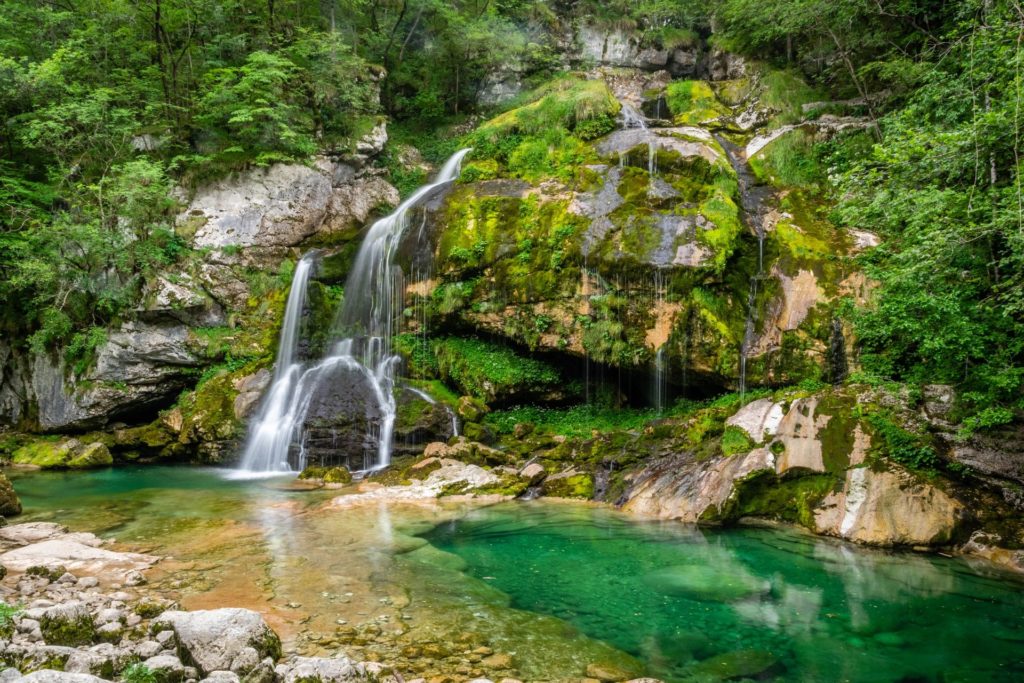
Chemical cosmetics are not only harmful to your own health, they also pollute our environment.
Let’s take a quick look back at our list of harmful ingredients.
Sulphates pose a great danger to our planet’s health. Deriving them from natural sources like palm oil is causing the destruction of rainforests and thus supporting climate change.
Triclosan can not only lead to inflammation and tumor growth in mammals, it also breaks down slowly. This makes it a threat to the environment, especially our oceans, as chemical ingredients are typically released from our skin directly into domestic wastewater systems.
But water pollution is not the only problem.
When water evaporates into the atmosphere, it re-accumulates into clouds, and returns to the earth as rain, contaminating our soils with toxic chemicals.
3. Natural Cosmetics Are Not More Expensive
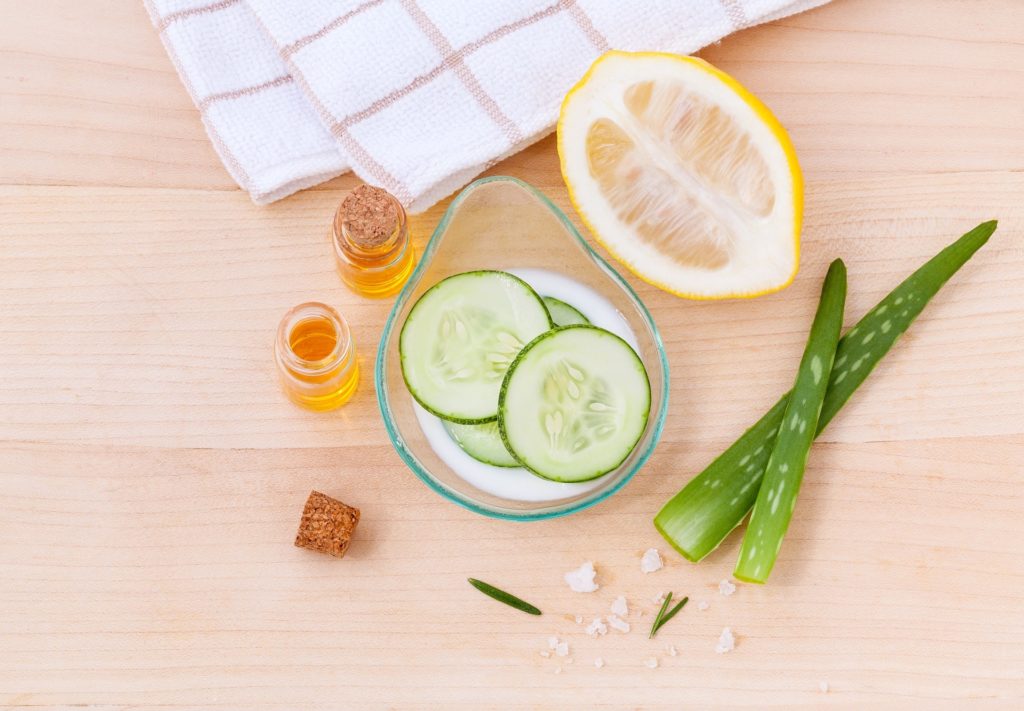
The myth that natural products are always more expensive is not true. There are several natural cosmetics brands that don’t cost a fortune.
And, let’s be honest: Is it really worth it to harm your health and the environment just to save a few bucks?
Obviously, that is sometimes easier said than done, and not everyone has the money to invest in (natural) beauty brands.
BUT here’s the good news: It’s super easy to make your own natural cosmetics! There are countless DIY options for all kinds of beauty products.
For some very simple home-made natural cosmetics, check this article.
Know The Certificates
As already mentioned, greenwashing is a big problem in the beauty industry. While the term ‘organic’ requires approval by an authorized certification program, the term ‘natural’ is not legally defined.
That’s why it’s important to look for cosmetics that have certifications to back their natural beauty claims.
Look out for:
ECOCERT (Certified Natural and Organic Beauty Products)
ECOCERT is one of the largest and most respected organic certification organizations in the world. It indicates sustainability, environmentally friendly processes and products formulated without GMO, Parabens, Phenoxyethanol, Nanoparticles, Silicon, PEG, synthetic perfumes and dyes or animal-derived ingredients.
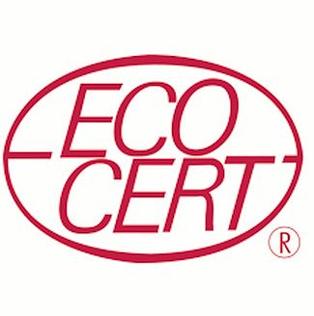
Read more on their website.
COSMOS (COSMetic Organic Standard)
The Europe-wide private standard COSMOS was developed by five charters members including BDIH (Germany), Cosmebio (France), Ecocert Greenlife SAS (France), ICEA (Italy), and Soil Association (Great Britain).
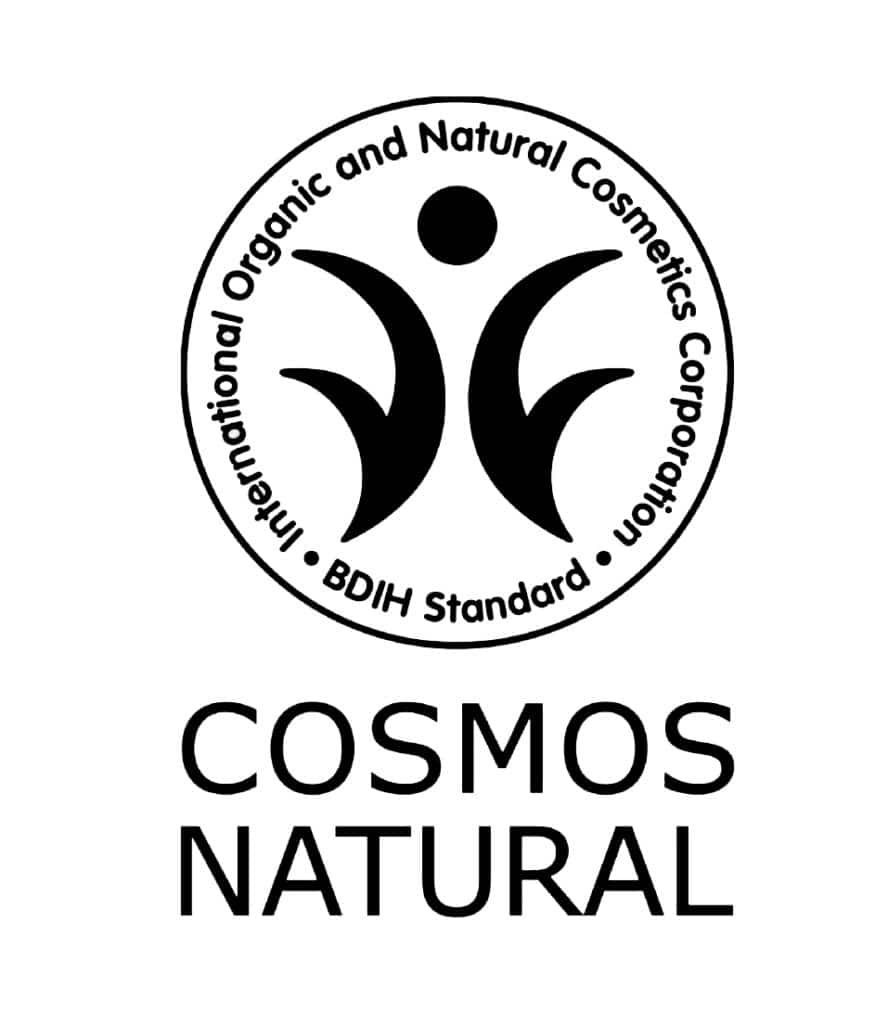
Read more on their website.
NATRUE (International Natural and Organic Cosmetics Association)
The international non-profit association NATRUE certifies products without synthetic fragrances and colors, petroleum derived products, silicone oils and derivatives, genetically modified ingredients, irradiation of end product and botanical ingredients and animal testings.

Read more on their website.
USDA (United States Dept of Agriculture)
The USDA logo is an internationally recognised standard of organic labelling. There are 3 USDA classifications based on the percentage of organic ingredients in the products:
- 100% Organic
- Organic (contains 95% minimum organically produced ingredients)
- Made with organic ingredients (contains at least 70 percent organic ingredients. )
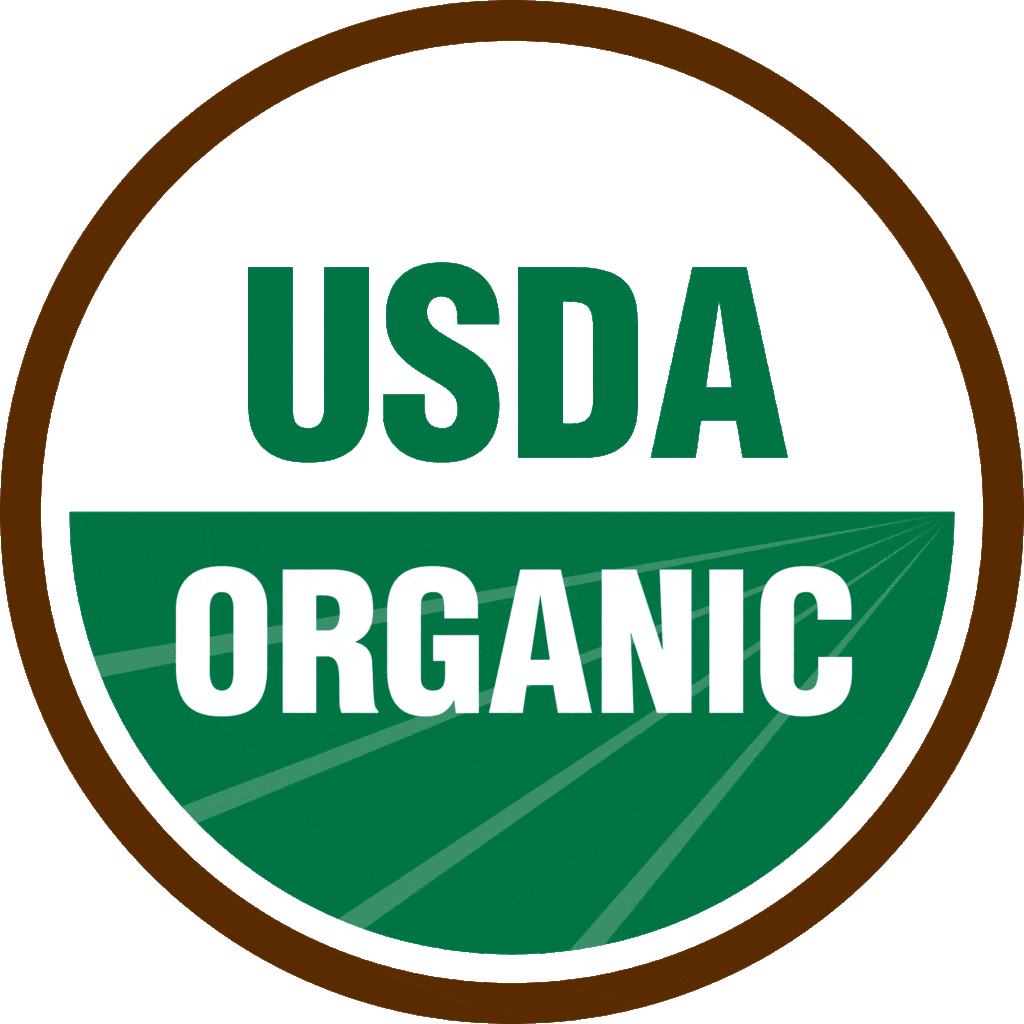
Read more here.
Soil Association
The Soil Association certificate is the most recognised and respected mark in the UK today. Any product carrying the Soil Association symbol contains the maximum amount of genuine organic ingredients and the minimum of synthetic materials and processing.
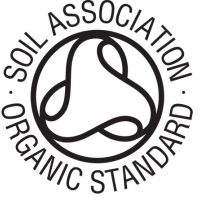
Read more on their website.
Additionally, choose beauty brands that have sustainability initiatives in place such as eco-refill programs, minimal packaging and biodegradable wrapping.
Top 10 Eco Cosmetics
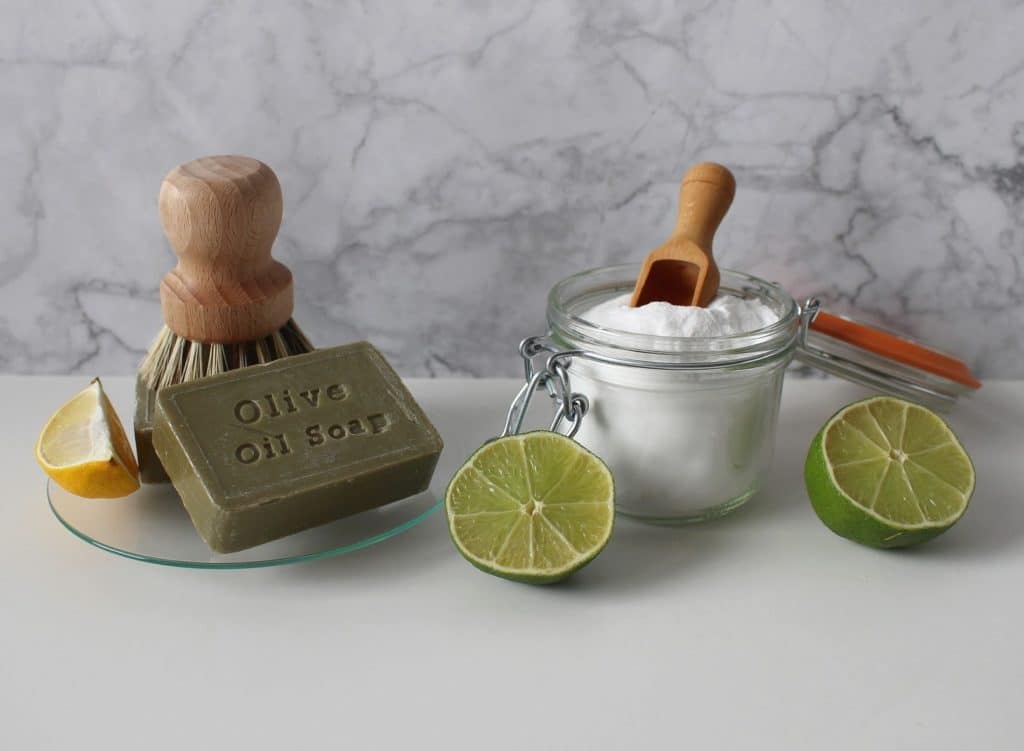
Following the latest trends, there are more and more beauty brands that focus on the fair and vegan production of natural cosmetics. Check out some of our favorites below.
Seed Phytonutrients Natural Shampoo
Seed Phytonutrients is a US-based business that invests in America’s independent organic farmers. All products are made from high quality seeds and other natural ingredients. This shampoo is free from sulphates and parabens, plant-based, gluten-free, non-gmo, and not tested on animals.
Buy Shampoo
100% PURE Lip & Cheek Tint
This beautiful multitasker by 100% Pure, a US-based brand, is full of antioxidant-rich fruits, as well as creamy shea and cocoa butter. The semi-sheer lip tint doubles as a cream blush for perfectly flushed cheeks.
Buy Lip & Blush Stick
Mountain Top Organic Argan Oil
Argan oil is the perfect moisturizer for dry and damaged skin, hair, and nails. It provides superior hydration, while serving anti-ageing purposes and reducing redness and other skin irritations. This allrounder by Mountain Top is USDA Organic certified.
Buy Argan Oil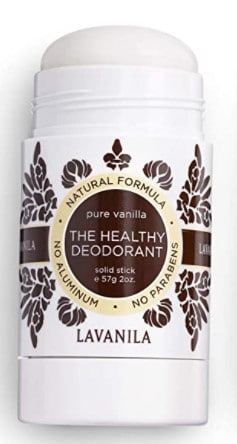
La Vanilla Natural Deodorant
This aluminum-free, natural deodorant contains a fresh blend of Madagascar vanilla and soft freesia petals. It is free of parabens and other toxic ingredients and packed with skin healthy vitamins and oils that soothe and nourish even the most sensitive skin.
Buy Deodorant
By Rosie Jane Perfume Oil
By Rosie Jane’s products are free of parabens, phthalates, BHT, and always cruelty-free. This vegan scent is hand mixed in Los Angeles using essential oils, absolutes, nature identicals, and fragrance oils. It comes in a 100% recyclable paper packaging made using wind power, vegetable-based inks, and sustainable paper.
Buy Perfume OilWhat are your favorite natural cosmetics and why? Tell us in the comment section below!

